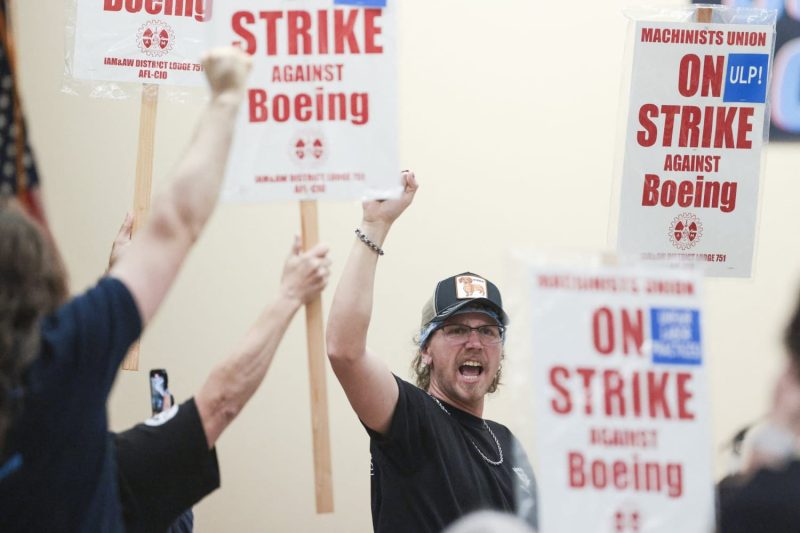
Boeing Factory Workers Say No To Contract: Strike Stirs The Skies!
The heart of American aviation manufacturing, the iconic Boeing Company, recently experienced an unprecedented upheaval as its factory workers embarked on a strike action following an overwhelming rejection of a proposed contract. The strike, which substantially disrupted the company’s operations, brings focus onto numerous factors that led to this impasse, chief among them being the workers’ dissatisfaction over various labor agreements.
The employees’ discontent was evidently clear as they significantly turned down Boeing’s proposed collective bargaining agreement. Despite Boeing’s attempts to negotiate, the primary point of contention was reported as arising from the issue of job security. The workers felt the new contract did not sufficiently protect their roles from being outsourced; a narrative that is common in manufacturing industries looking to cut costs and improve efficiency. They argued that they are entitled to solid assurances regarding the future of their employment.
Compensation was another major bone of contention. Despite the fact that Boeing is a multi-billion dollar company, it was alleged that the contract failed to provide sufficient wage increases and benefits. This claim was particularly contentious in the face of rising health care costs and inflation. The workers expressed disappointment over the company’s unwillingness to increase wages to prevent real wage cuts.
Another flashpoint was the company’s proposal regarding pension schemes. Many workers were uncomfortable with the proposed move towards a contribution-based scheme away from the traditional defined benefit pension plan. The lackluster proposal was viewed as an attempt to shift the burden of retirement planning onto employees.
The proposed contract also reportedly fell short of adequately addressing issues about work schedules. The factory workers expressed discontent about the company’s atticulated working hours and overtime provisions. They deemed it to be unfair and exhausting, and believed the company was exploiting their labor for increased productivity without adequate compensation.
In the wake of the strike, Boeing has had to deal with substantial disruption in its manufacturing process. This is crucial due to its impact on the company’s production timelines and deliveries, potentially affecting relationships with their clients. The strike has also opened the door to reputational damage, creating a public relations nightmare that could lead to long-term business consequences.
Moreover, the collective action by workers is indicative of a deep-seated discontent with the company’s labor practices. It emphasizes the importance of ethical labor practices and the necessity of treating workers fairly. It is also a call for companies, large and small, to take cognizance of the real-life implications of their labor contracts and adjust their policies and proposals accordingly.
The Boeing strike underscores the importance of bargaining in good faith and ensuring worker’s
